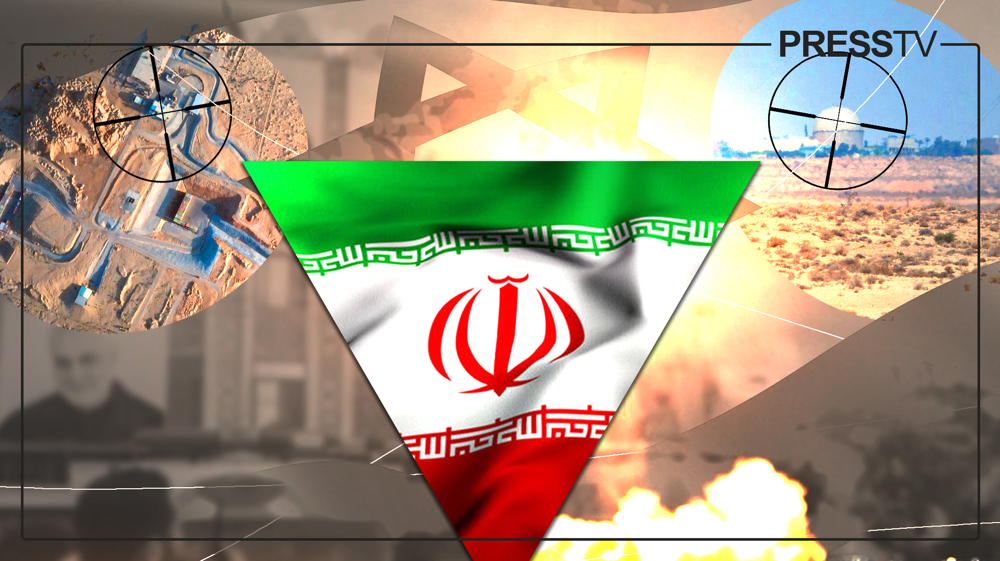France to officially punish pro-Palestine voices for criticizing Israel
By Robert Inlakesh
Robert Inlakesh is a journalist, writer, and political analyst, who has lived in and reported from the occupied West Bank. He has written for publications such as Mint Press, Mondoweiss, MEMO, and various other outlets. He specializes in analysis of the Middle-East, in particular Palestine. He also works for Press TV as a European correspondent.
Last Tuesday, December 3, the French parliament adopted a resolution which it claims helps protect Jews from anti-Semitism, but instead adopted a piece of legislation which delegitimizes Palestinian voices and has implemented a categorically racist law against them.
The “Motion for a resolution to fight anti-Semitism” was tabled by Paris Lawmaker Sylvain Maillard and was passed through parliament with 152 votes for and 74 against. The resolution itself was based upon the International Holocaust Remembrance Alliance (IHRA) definition of anti-Semitism, which equates criticism of Israel and also certain conspiracy theories with hatred of Jewish people.
The resolution, despite claiming to oppose one type of bigotry, has in fact legalized another type of bigotry. Instead of protecting Jewish people, this resolution passed in France makes it hate speech for Palestinians to criticize the regime which has ethnically cleansed them and is currently killing them and operating an apartheid system against them.
The overwhelming majority of Palestinians living inside of France are evidently opposed to the policies of Israel. To delegitimize their ability to free speech on the foreign regime which kicked them out of their homeland is nothing more than a racist double standard. The irony in this is that it is not only killing freedom of speech, whilst supposedly protecting one minority group from demonization, but it actually demonizes an entire community of people just because of where they come from and what they believe in, which is inherent to their identity.
There are no such bills which would make it hate speech to criticize Palestinian political institutions and the actions taken by these given groups; in fact, such proposals themselves would likely cause a mainstream media uproar followed by accusations of anti-Semitism. And rightfully, there would be an outcry, and the mood from French Jews would be, that they were targeted, if such a piece of legislation was to be introduced. So why are the concerns of French Palestinians not taken into account like this?
It seems that for the Palestinians, no matter where they go or what passport they hold, the discrimination that comes with being from Palestine follows them around indefinitely. Even to speak about their suffering and to get mad about Israel, criticizing it with strong language as we humans do when emotions get heightened is forbidden for Palestinians.
But this discrimination does not stop there. France is not the only country which openly supports Israel and has introduced anti-Palestinian racist definitions of anti-Semitism into forms of law.
It is ironic that supporters of a regime like Israel, which is based on a type of hard-line European ethno-fascist nationalism, are introducing racist legislation on the basis that it protects another minority group.
In the United States, there was also a bill passed earlier this year which condemns the Boycott, Divestment and Sanctions Movement (BDS). The BDS movement is a non-violent protest group which aims to hold Israel accountable for its crimes against the Palestinians, but even this is too much. Despite the fact that the United States' own constitution stipulates that this type of movement is a right to all citizens, apparently Israel is more important to the Congress than the US founding documents.
Donald Trump has now jumped on the bandwagon, with France, introducing a new definition of anti-Semitism — following the IHRA definition — which includes “targeting of the state of Israel.”
The United Kingdom’s leading political parties, including even the Labour Party — to which many pro-Palestinian advocates belong — have adopted the IHRA working definition of anti-Semitism after large-scale pressure campaigns.
In fact, if a Palestinian, who has been living in exile for over 70 years and whose family have been killed and suffered at the hands of Israel’s military occupation, was to write this very article in France, it could be now construed as anti-Semitic hate speech.
These are the times we are now living in. We have passed a stage in the West where Palestinians and those who would support them would be expunged from public life for their human rights activism. It is now more publicly acceptable to stand up for the Palestinians, but it is now becoming de facto illegal for us to voice our opinions on the crimes of Israel.
If we are not careful, we could end up living in a world where Palestinians are jailed in France, the US, and the UK for criticizing the regime which has persecuted them on the basis of their ethnicity.
The question now for Palestinians and Palestinian human rights activists is: if we are eventually forbidden by law from talking about Israel and if legislation is laid which prevents us from engaging in the BDS movement, are we now living in free societies? The BDS movement is the only non-violent way of holding Israel to account for its crimes, so why is this form of protest attacked so much?
Another element to this is the targeting of Muslims inside of Trump’s America as well as France and Britain. It is widely understood that the Muslim populations of these Western nations overwhelming support the Palestinian cause for human rights and national liberation. So is this also an Islamophobic attack from the state level on the Muslim community?
If the West, which claims to be all inclusive and eager to integrate Muslims into their societies, is tabling legislation which attacks human rights causes and beliefs we hold dear, is this not Islamophobia manifesting itself on a state level?
The final question that also now remains is: what will anti-Semitism actually mean soon and will it end up being a large backlash against normal Jewish citizens when anti-Semitism is fully equated with opposition to Israel? This prospect should be especially concerning for Jewish people living in Europe at a time of heightened nationalism and anti-Islamic attitudes. Is it really inconceivable to believe that perhaps some of these nationalist movements could start attacking Jews the same way they do Muslims and if so, are these pieces of legislation being used to drive a further wedge between Jews and Muslims at a time that the two should be natural allies?
(The views expressed in this article do not necessarily reflect those of Press TV.)
Iran’s security chief in Russia to underline Israel’s aggression
VIDEO | Smoke rises from Gaza as fighting continues
ICRC decries escalating Israeli raids across occupied West Bank
Israel still prevents food convoys from reaching north of Gaza: UNRWA
NYPD arrests multitude of pro-Palestine students at NYU campus
Iran’s decisive response to Israel disrupted enemy’s equations: Hamas
Iran releases details of confiscated Israeli transit cargo
VIDEO | Press TV's news headlines















 This makes it easy to access the Press TV website
This makes it easy to access the Press TV website